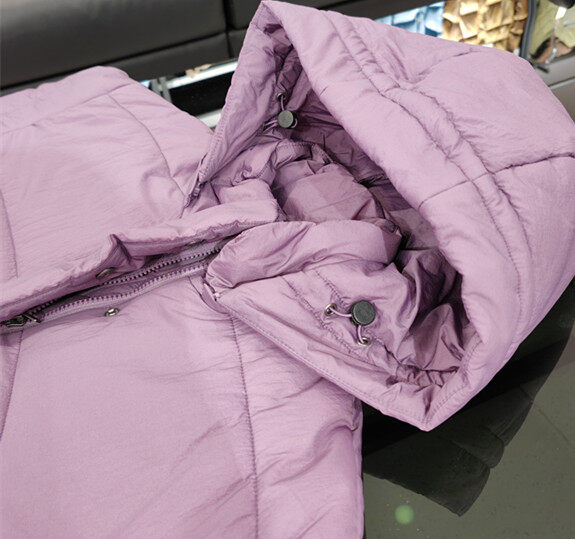Email format error
Email cannot be empty
Email already exists
6-20 characters(letters plus numbers only)
The password is inconsistent
Email format error
Email cannot be empty
Email does not exist
6-20 characters(letters plus numbers only)
The password is inconsistent


The Cultural Significance of Hoodies
Hoodies are more than just a piece of clothing; they have evolved into powerful symbols of rebellion, comfort, and identity across various cultural landscapes. This article delves into the multifaceted role of hoodies in contemporary society, exploring their adoption as symbols of resistance, their emotional significance as comfort clothing, their portrayal in media, the influence of celebrities, and their connection to various subcultures. In doing so, we will highlight how the option to order hoodies wholesale enhances accessibility and fosters community engagement.
Hoodies as Symbols of Rebellion and Resistance
Historical Context
The hoodie’s journey began in the early 1930s when it was created for laborers in cold-storage warehouses. This practical garment quickly gained popularity among athletes and eventually made its way into the mainstream fashion world. However, it wasn’t until the late 20th century that hoodies emerged as symbols of rebellion.
The rise of hip-hop culture in the 1980s played a significant role in this transformation. Artists and performers began to adopt the hoodie as a staple in their wardrobes, using it as a means of self-expression and resistance against societal norms. The hoodie became synonymous with youth culture and rebellion, representing a rejection of authority and traditional fashion standards.
Modern Interpretations
Today, the hoodie carries a more complex significance, especially in the context of social justice movements. One of the most poignant examples is the case of Trayvon Martin, a Black teenager who was shot while wearing a hoodie in 2012. This tragic event catalyzed the #BlackLivesMatter movement, with the hoodie becoming a symbol of solidarity and a call for justice. Wearing a hoodie in public spaces has since been adopted as a form of protest against racial profiling and police brutality.
The ability to order hoodies wholesale has democratized this symbol of resistance. Activists and community organizations can purchase bulk hoodies to distribute at protests, rallies, or events, reinforcing collective identity and solidarity. By making these garments widely available, the hoodie transcends its commercial appeal, becoming a powerful tool for social change.
Comfort Clothing and Emotional Support
Definition of Comfort Clothing
Comfort clothing refers to garments that provide a sense of security, warmth, and emotional support. In an increasingly chaotic world, the psychological benefits of wearing certain clothing are more relevant than ever. Hoodies, with their soft fabrics and often oversized fit, embody this concept perfectly.
Hoodies as a Source of Comfort
Hoodies are often associated with feelings of warmth and safety. The soft, cozy fabric envelops the wearer, creating a sense of security. Many individuals find solace in the act of putting on a hoodie during stressful times or after a long day. This “emotional support” aspect of hoodies has been highlighted in various studies, which suggest that familiar clothing can invoke feelings of nostalgia and comfort, serving as a kind of armor against the outside world.
Moreover, the hoodie’s design—complete with a hood that can be pulled up—adds a layer of privacy. This can be especially significant for individuals seeking solace in crowded or overwhelming environments. The hood acts as a shield, allowing wearers to retreat into themselves and create a personal space, even in public settings.
Accessibility through Wholesale Orders
The availability of hoodies through wholesale orders enhances their accessibility, enabling various organizations and groups to provide comfort clothing to those in need. Nonprofits, schools, and community organizations can order hoodies in bulk for distribution, ensuring that individuals who may not have the means to purchase their own can still experience the emotional and psychological benefits associated with wearing a hoodie.
For example, during difficult times—such as natural disasters or economic downturns—community initiatives often distribute hoodies to provide warmth and comfort. By ordering hoodies wholesale, these organizations can create a sense of belonging and support within their communities.
Hoodies in Media and Pop Culture
Portrayal in Films and Television
The portrayal of hoodies in films and television has greatly influenced public perception of this garment. Iconic characters in popular movies and shows have donned hoodies as a representation of rebellion, mystery, or youthfulness. For instance, the character of Tyler Durden in Fight Club uses the hoodie to embody anti-establishment sentiments, while in Stranger Things, the teenage characters often wear hoodies, showcasing their youth and camaraderie.
Television shows, especially those targeting younger audiences, have also embraced the hoodie as a symbol of relatable characters. From high school dramas to sci-fi series, hoodies are frequently used to depict the casual, laid-back style of youth, making them accessible to a wider audience. This consistent presence in media solidifies the hoodie’s status as a cultural staple.
Representation in Music
Hoodies are prominently featured in the music industry, particularly within hip-hop culture. Many artists, such as Kanye West, Travis Scott, and J. Cole, have used hoodies not only as a fashion statement but also as a way to express their personal narratives and socio-political messages. Music videos often showcase hoodies in various contexts—whether as symbols of defiance or comfort, they resonate deeply with audiences.
Hip-hop artists have effectively used hoodies to establish their identities. The imagery of a hoodie can evoke feelings of rebellion, resilience, and authenticity. As these artists gain popularity, their fashion choices influence the next generation of consumers, leading to a significant increase in hoodie sales. Consequently, the option to order hoodies wholesale has become an essential aspect of promoting merchandise associated with these artists.
Celebrities and Fashion Trends
The influence of celebrities on hoodie fashion trends cannot be overstated. Many public figures have popularized the hoodie as a chic and stylish option, transcending its original utilitarian purpose. From street style to red-carpet events, celebrities such as Rihanna and Justin Bieber have redefined how hoodies are perceived, showing that they can be both fashionable and comfortable.
Social media platforms, particularly Instagram and TikTok, play a crucial role in shaping hoodie trends. Influencers often showcase various ways to style hoodies, encouraging followers to embrace this versatile garment. As a result, consumers are more inclined to order hoodies wholesale, especially when they are inspired by their favorite celebrities.

Impact on Identity and Belonging
The Hoodie as a Form of Self-Expression
Hoodies provide an avenue for personal expression and identity formation. Many individuals choose to customize their hoodies with patches, prints, or embroidery that reflect their interests, beliefs, or affiliations. This personalization allows wearers to showcase their individuality while also connecting with like-minded communities.
The act of wearing a hoodie can communicate a sense of belonging. For example, fans of specific bands, sports teams, or social causes often wear customized hoodies to signify their loyalty and shared values. This collective identity fosters a sense of community and belonging, reinforcing the idea that hoodies are not merely clothing but symbols of shared experiences and values.
Social Perceptions
Despite their positive associations, hoodies can also carry negative stereotypes. In certain contexts, wearing a hoodie may lead to assumptions about an individual’s intentions or character. This can result in profiling and discrimination, particularly among young people and people of color. The juxtaposition of hoodies as symbols of rebellion and as targets for societal judgment illustrates the complexity of their role in contemporary culture.
Conversely, many individuals actively challenge these stereotypes by embracing hoodies as a form of self-empowerment. By wearing hoodies with pride, they can confront societal perceptions and reclaim their identity. This empowerment is further enhanced by the ability to order hoodies wholesale, allowing individuals to create unique designs that reflect their personal narratives.
Wholesale Options and Identity
The accessibility of hoodies through wholesale options enhances their role in community building. Organizations, clubs, and schools can order bulk hoodies that showcase their logos or mottos, fostering a sense of identity and pride among members. This practice not only reinforces belonging but also allows individuals to express their affiliations openly.
Moreover, wholesale hoodies can serve as tools for raising awareness about social causes. By customizing and distributing hoodies with specific messages, organizations can create visibility around important issues, encouraging individuals to unite under a common cause. This collective expression strengthens community ties and enhances the emotional significance of the hoodie as a symbol of identity.
Hoodies and Subcultures
Skate Culture
The relationship between hoodies and skate culture is deeply intertwined. Skaters adopted hoodies as a functional and stylish option, providing comfort while performing tricks. The oversized fit of many hoodies allows for ease of movement, making them ideal for an active lifestyle.
Moreover, the rise of skate brands has contributed to the popularity of hoodies. Companies like Thrasher and Supreme have successfully integrated hoodies into their collections, solidifying their status within skate culture. As skaters and enthusiasts order hoodies wholesale, they not only embrace the functional aspects of the garment but also the cultural significance that accompanies it.
Hip-Hop Culture
Hip-hop culture has significantly influenced the perception of hoodies, with the garment becoming synonymous with the genre’s fashion identity. Hoodies are often seen as a representation of urban culture and resilience, embodying the struggles and triumphs of those within the community.
Artists in the hip-hop scene frequently use hoodies in their branding, making them essential items for fans. As a result, wholesale orders of hoodies featuring album art or artist logos have become commonplace, allowing fans to connect with their favorite artists on a personal level. This relationship further emphasizes the hoodie’s role as a symbol of identity within hip-hop culture.
Ordering Hoodies Wholesale for Subculture Communities
The ability to order hoodies wholesale has greatly benefited various subcultures by providing affordable and accessible options for members. By enabling bulk purchases, organizations and clubs can create a cohesive look that reinforces group identity.
For instance, skate parks or hip-hop dance crews often wear matching hoodies, showcasing their unity and shared passion. This communal approach to fashion fosters a sense of belonging and pride among members, highlighting the emotional connection individuals have to their chosen subcultures.
Conclusion
Hoodies have transcended their original purpose as practical garments to become powerful symbols of rebellion, comfort, and identity. Their significance in social movements, media portrayals, and subcultures demonstrates the deep emotional connections individuals have to this versatile piece of clothing. The option to order hoodies wholesale has further enhanced accessibility, allowing communities to embrace this symbol in meaningful ways.
As we look to the future, it is clear that the hoodie will continue to play a vital role in shaping cultural narratives. Whether as a form of protest, a source of comfort, or a representation of identity, the hoodie remains a significant garment in contemporary society. Its ability to adapt and resonate across various contexts ensures its lasting impact on fashion and culture for years to come.

